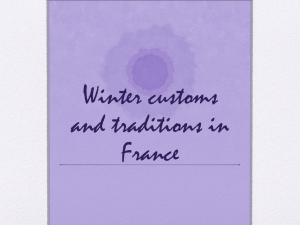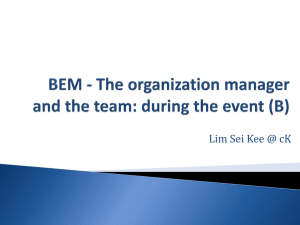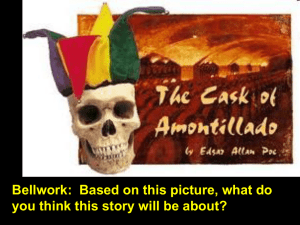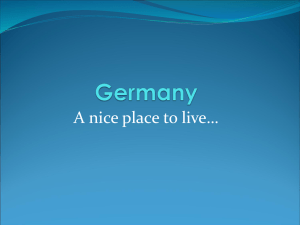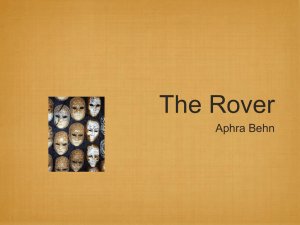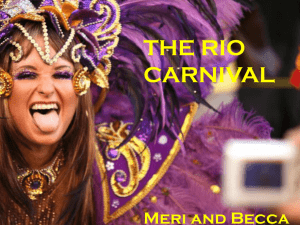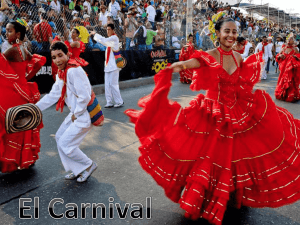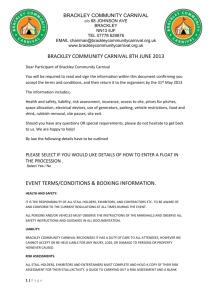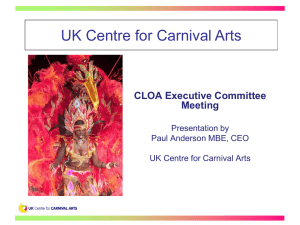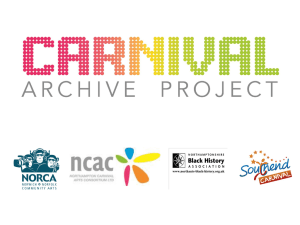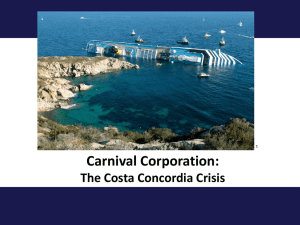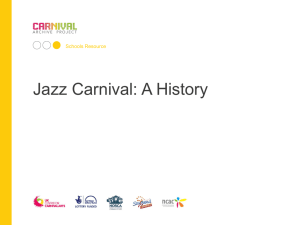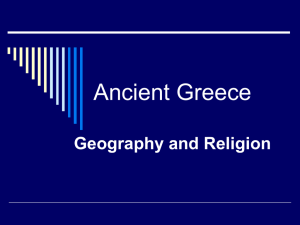APOKRIES-CARNIVAL-IN
advertisement
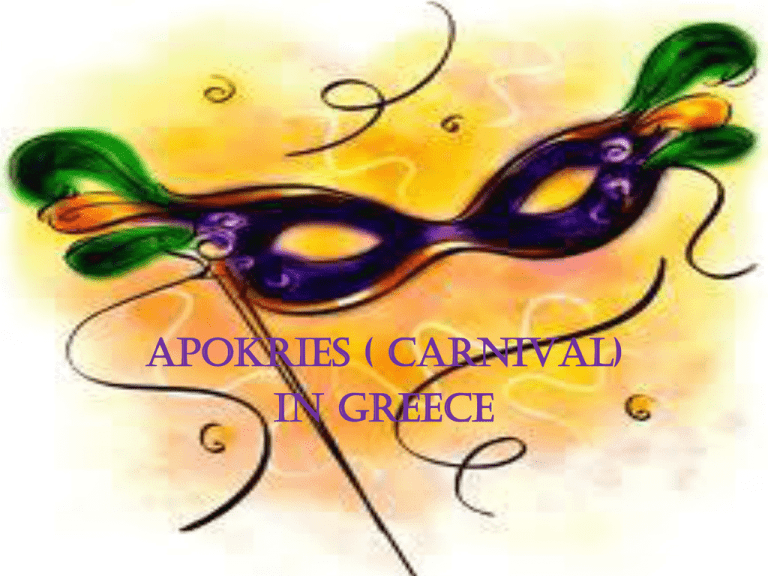
APOKRIES ( CARNIVAL) IN GREECE • The Carnival season in Greece is known as the Apokria ( “saying goodbye to meet"), because after that, the 50 days of Lent before Easter start. The second Thursday before the beginning of Lent is called Tsikno Pempti (Smoke Thursday), a day when meat should be cooked at every house. The celebrations come to a head in the last week (and particularly the last weekend) before the beginning of Lent with Kathari Deutera (Clean or Ash Monday) . Clean Monday is a public holiday in Greece and is marked by meat free feasts and thflying of kites throughout the country. The Greek Carnival has its roots in ancient Greece. It is connected with the worship of Dionysus, God of wine. • In ancient Greece, the festival in honour of Dionysus took place in early Spring, as Dionysus symbolised life’s rebirth after Winter. Today, carnival is held in the same period but not on a fixed date, as it depends on the moveable feast of Easter. • Today, there are many different carnival parades and festivities going on all over Greece. Hundreds of groups take part in those parades, and anyone who wishes to participate can just join a group. Celebration s stop on Clean Monday, when kitchen utensils are cleaned of animal products because the Lent period starts CARNIVAL IN PATRAS (PELOPONNEESE) The carnival in Patras is the greatest in Greece. There is a big float parade and thousands of masqueraders fill the main streets of the town. The floats have themes taken from current political and social circumstances. • . After the Grand Parade, and when the sun sets, the King of the Carnival is cast into flames at the Port of Patras. This is called the Closing Ceremony. CARNIVAL IN XANTHI (THRAKE) • The carnival in Xanthi is the greatest in North Greece. mkkiugfdx CARNIVAL IN NAOUSA (MASEDONIA) YENITSAROI AND BOULES • In Naoussa, every year people celebrate the custom of “Yenitsari” and “Boules”. Yenitsaroi are men dressed in traditional Greek costumes and Boules are also men dressed-up as women. They all wear masks. CARNIVAL IN YALAXIDI ( CENTRAL GREECE) • The carnival in Yalaxidi is famous for the custom of “ flour war” , a strange but funny carnival custom. On Clean Monday they throw flour and ashes at each other, so they turn white and in a minute they’re all covered in black! CARNIVAL IN SKYROS ( YEROI – KORELA) • The custom of yeroi (old men) , korela ( young lady) and koudounati ( bell carriers) in Skyros (an island in the Aegean Sea). Men are dressed up as old men and a young lady and they go around the streets of Skyros. They say funny stories and their bells make lound noise. At the end of the day they all dance and drink at the central square YAITANAKI • Yaitanaki is a traditional Carnival dance. One of the dancers holds a pole from which 12 ribbons start . The dancers hold the colourful ribbons and dance around the pole. The dance symbolizes the circle of life. FLYING A KITE ON CLEAN MONAY • Families usually have a picnic with meat;free food and sweets and they fly colourful kites. They usually compete to each other on whose kite is going to fly higher. CARNIVAL IN CHIOS • Almost at every village there are festivities and dances organized during the three carnival weeks and on Clean Monday. Groups of people ,dressed up with no special costumes but with everything that they find funny, may go from house to house without reviling who they really are A. MOSTRA AT THIMIANA VILLAGE Celebrations start on the last Friday of the Carnival. The floats ,which are prepared by the local people , are taken to the central square and from there the float parade will start on Sunday More floats TALIMI • One of the attractions of the Mostra is the talimi dance. It represents the fight between the people of Thimiana and the pirates whose attacks were very common at the island. B. AGAS AT MESTA VILLAGE • ". Agas “ is a very strict judge. He judges and condemns most of the people that are present. More over, they are obligated to buy off their sentence. The money they offer are given to the cultural association of the village. More pictures • mnhh TYPICAL CLEAN MONDAY FOOD ( LAGANA, HALVAS, PASTELI) BEANS, OCTAPUS, DOLMADAKIA, SEA FOOD KIRA SARAKOSTI Kira Sarakosti is a lady with seven legs, each one representing the seven weeks before Easter. It can be made by pastry or it can be made of paper. At the end of each week you cut off a leg and count leg and you can count the time days left until easter.

